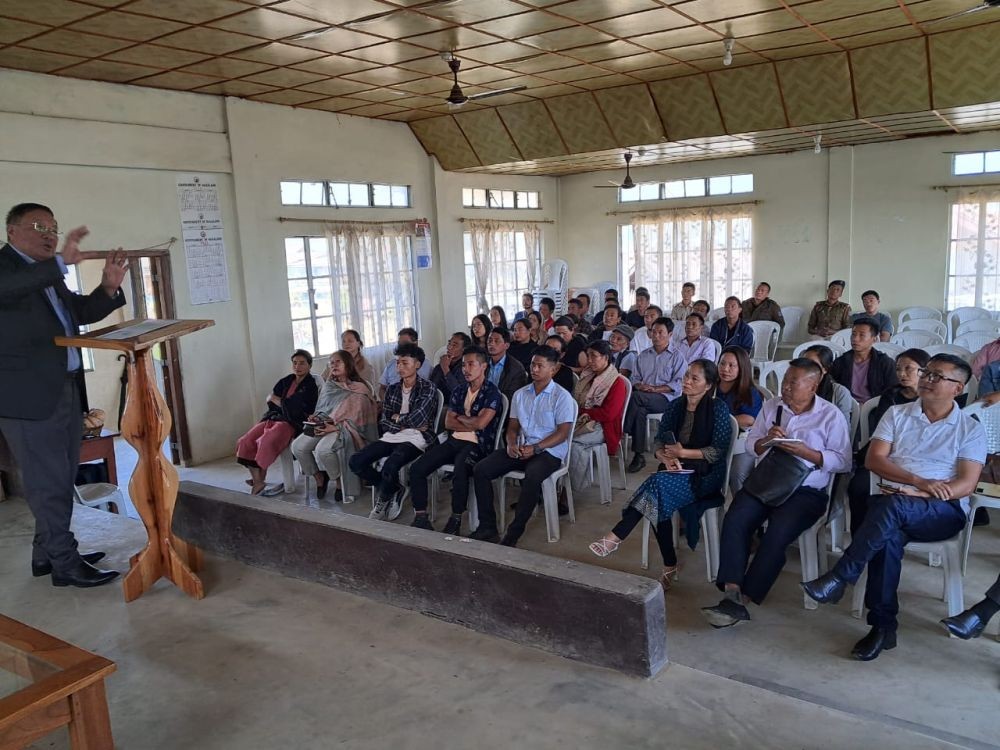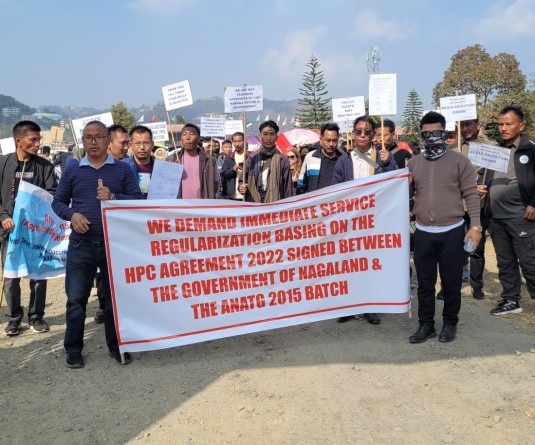Dr P Ngully, Consultant - Psychiatrist and Chairman, Kohima Educational Society speaking at the sensitisation programme on substance abuse disorders and mental health at Chizami village on October 21.

PHEK, OCTOBER 26 (MExN): Chizami Youth Society (CYS) in collaboration with North East Network (NEN) organised a 'Sensitisation programme on substance abuse disorders and mental health' at Chizami village on October 21. The programme was attended by representatives from the Church, youth organisations, student unions, women societies, village council and GBs of Chizami Village, Enhulumi Village, Sumi Village and Chizami Town.
Dr P Ngully, Consultant - Psychiatrist and Chairman, Kohima Educational Society was the resource person of the programme, a press release issued by Wekoweu Tsuha, state coordinator, NEN Resource Centre informed.
Speaking on 'Understanding mental health, risk factors for mental health disorders and community response', Dr Ngully highlighted the different parts of the brain i.e. emotional, regulatory and reasoning brains and their functions, and how one part inter-relates with the other.
He noted that mental illness in Nagaland is largely a manifestation of 'Intergenerational trauma.’ He underscored the need to recognise and accept mental illnesses like any other illnesses, and seek timely professional help, where patients themselves must participate in the treatment, family and community must extend support, ensure healthy diet, and spiritual/prayer support to patients.
Dr Ngully stated that substance abuse disorders (or addiction) is not really about weak will-power or moral, but must be recognised as an illness that requires treatment. Trauma, mental health, genetics and market forces are the root causes of addiction, hence understanding history of patients is important.
He noted that discrimination, rejection, punishment are counter-productive strategies to address substance abuse disorders. He shared workable strategies that can be adopted, to respond to mental illness and alcohol abuse disorders. This includes education and sensitization, detox programmes, rehabilitation, support centres/mechanisms for patients. Collaborative efforts of multi- stakeholders adopting multi-pronged strategies is critical to address this serious social concern, he added.
The programme ended with a collective action plan to organise an alcohol detox retreat for affected persons in 2024. This is a first and crucial step towards overcoming addiction and treating symptoms, it was underscored.





